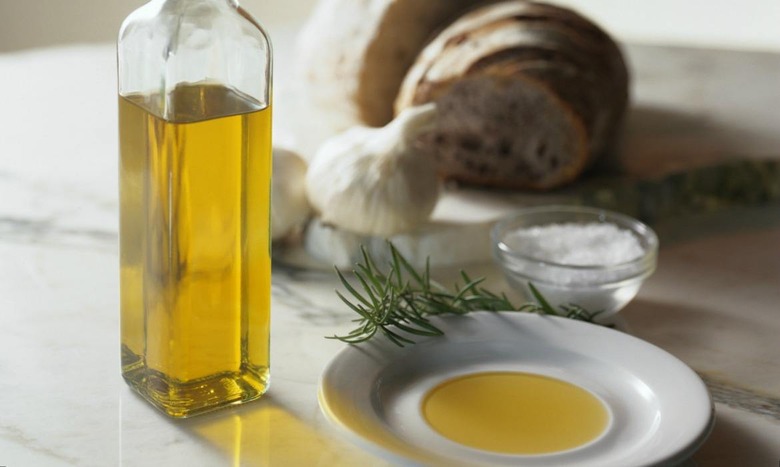Why You Should Try Algae Oil
All oils are a combination of many fatty acids. From olive oil to coconut oil, all cooking oils have approximately 14 grams of fat and 120 calories per tablespoon, but each oil has different amounts of healthy fat — known as unsaturated fat, which include both monounsaturated and polyunsaturated fats. Algae oil is the newest cooking oil on the market, and ThriveTM is the first one to hit grocery store shelves. Compared to other cooking oils, algae oil boasts the highest level of monounsaturated fats, which have been shown to play a key role in maintaining heart health, healthy blood pressure, and healthy blood sugar levels, among other benefits.
Click here for the Cooking Oils, Simplified slideshow.
Algae oil also offers the lowest level of saturated fat of any cooking oil. Studies have shown that replacing saturated fat with monounsaturated fat helps maintain heart health and control inflammation.
Cooking with algae oil is an easy way to incorporate more monounsaturated fatty acids (MUFAs) in your diet. Today, the U.S. population is eating too few MUFAs. In fact, many experts and professional societies recommend that approximately 20 percent of your calories come from MUFAs each day, which would amount to 50 grams per day for the average 2,000 calorie diet. Yet, most people are getting only half of that daily. Algae oil provides 13 grams of monounsaturated fats per tablespoon, so two tablespoons provide more than half the daily-recommended amount.
Algae oil is also your best choice when it comes to high-heat cooking. When you're cooking at a high heat, you want to use oils that are stable and don't oxidize or go rancid easily. When oils that are high in polyunsaturated fats are heated, they are particularly prone to forming free radicals that can become toxic compounds. Algae oil also has the highest smoke point of any cooking oil at 485 degrees F, meaning that it doesn't break down easily on high heat.
The fatty acid breakdown of algae oil is: more than 90 percent monounsaturated fats, less than four percent polyunsaturated fats, and less than four percent saturated fats. I think substituting algae oil for both saturated fat and refined carbohydrates can have a profound impact on your health, both in healthy people and especially in people who are insulin resistant or pre-diabetic.
The accompanying slideshow is provided by special contributor Will Budiaman.
